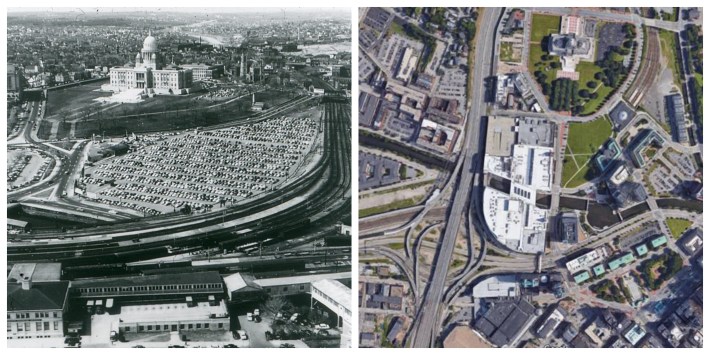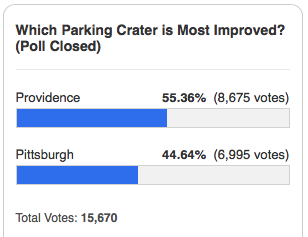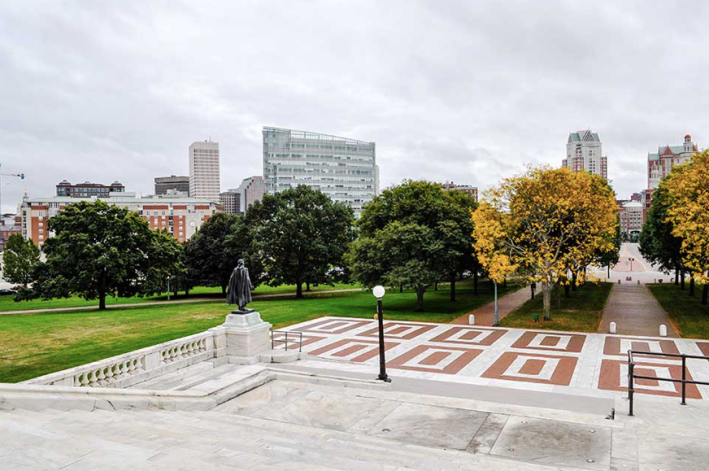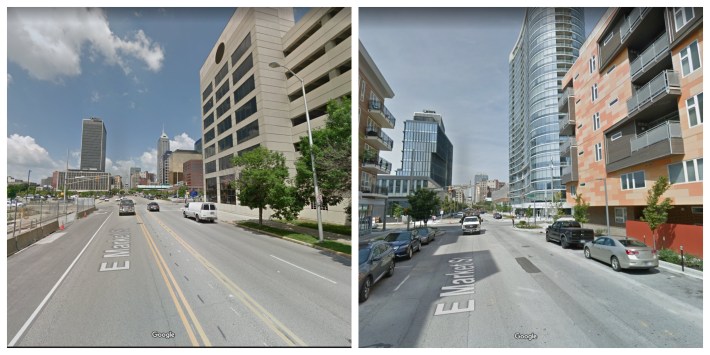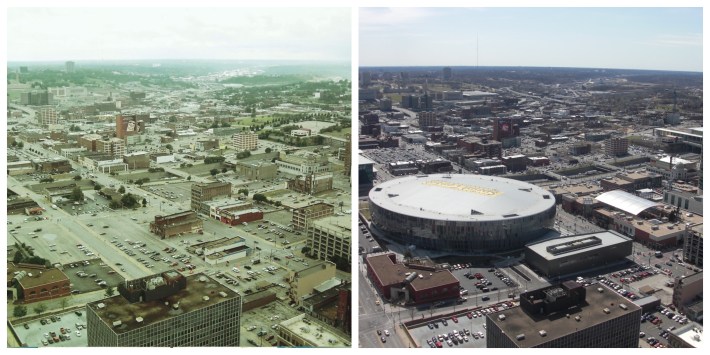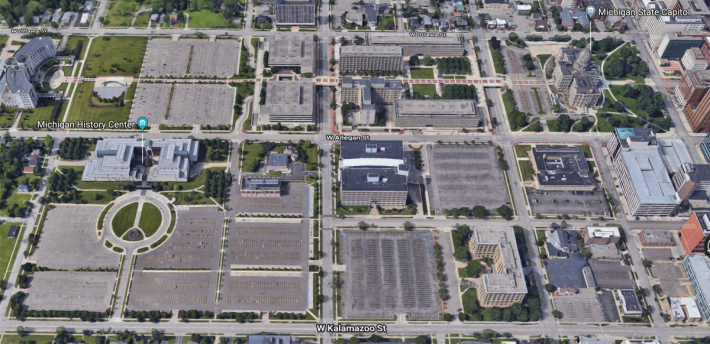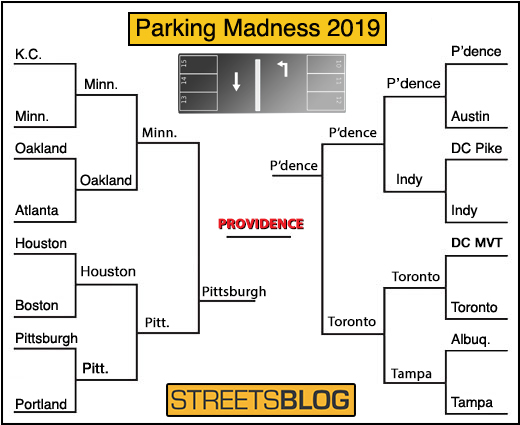Streetsblog readers have spoken! Providence has won the "Golden Crater" for its decades-long effort to reclaim its public spaces from cars.
The Rhode Island capital soundly defeated Pittsburgh, with 55 percent of the vote. Both cities had made the finals out of an initial pool of 16 cities, all nominated for dramatically improving an urban space from a former parking crater into a beloved gathering spot.
Many cities made a strong claim to the crown, but Providence's Capitol Hill area had the best story.
Back in the mid part of the last century, the Rhode Island Statehouse area was surround by an absolute moat of grey, lifeless asphalt.
The site had some natural barriers, including railroad tracks that cut off the statehouse from downtown. A river actually flowed under the whole thing. In the 1980s the Guinness Book of World Records called the parking expanse that topped the stream the widest bridge in the world.
But beginning in the 1970s, Rhode Island and Providence were able to win federal funding to bury and move their railroad tracks. They daylighted the Woonasquatucket River, and built a walkable park along its banks.
The whole area is barely recognizable now, containing “over one million square feet of retail space, 2 to 2.5 million square feet of office space, 1,000 hotel rooms, 500 residential units, 10,000 permanent jobs," according to a local expert.
The city now hosts the famous Waterfire art installation every few weeks through the summer.
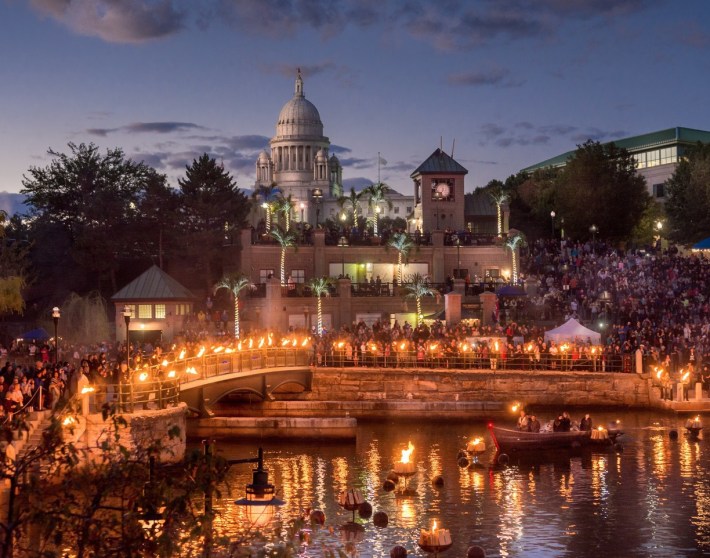
Mayor Jorge Elorza was excited about the victory, telling Streetsblog: “In Providence, we are actively investing in creating vibrant public spaces that promote unique, location-based experiences to encourage residents and visitors to enjoy such spaces as the Riverwalk and Waterplace Park.”
One of the cool takeaways from this year's competition is that cities are improving. Apartments and restaurants and offices and parks and all kinds of places for people are replacing parking craters. Here are a few highlights from the earlier rounds of this year's competition.
In the past when this competition featured actual parking craters instead of former parking craters, we tried to keep it lighthearted, but it was a little depressing. For instance, last year's "winner," Lansing, has a statehouse (top right corner of the photo) that is still surrounded by parking lots.
This year's competition was more uplifting, so kudos to the cities and their nominees. Providence truly deserved the honor — and will hopefully inspire next year's nominees.

